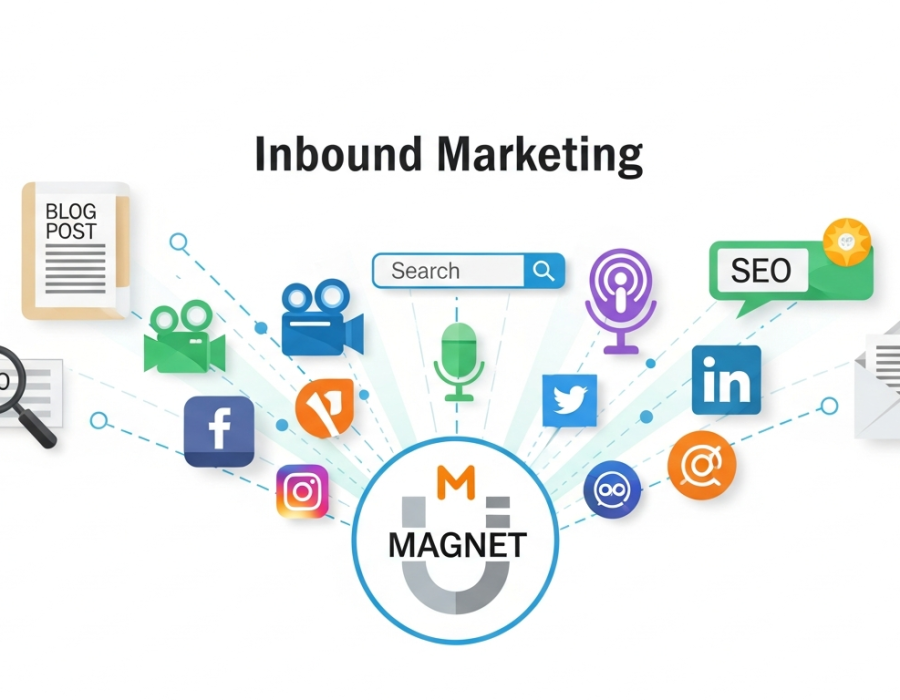As the digital landscape continues to evolve, one frontier stands out as the next major shift in online interaction: the metaverse. Blending immersive technologies such as AR, VR, blockchain, and 3D virtual environments, the metaverse is reshaping how consumers engage with brands. For marketers, it represents a powerful new platform to build communities, host experiences, and create digital-first brand ecosystems.
What Exactly Is the Metaverse?
The metaverse is a network of interconnected virtual worlds where users socialize, play, work, and shop through digital avatars. Platforms like Decentraland, Roblox, Fortnite Creative, Horizon Worlds, Spatial, and Sandbox are among the best-known virtual spaces where brands are already building digital experiences.
In these environments, consumers can:
- Attend immersive brand events
- Purchase digital products and NFTs
- Interact with 3D versions of real-world items
- Participate in community experiences
This shift enables brands to forge deeper, more interactive relationships with customers.
Why the Metaverse Matters for Brand Marketing
1. Immersive Customer Engagement
Traditional ads feel limited compared to the metaverse’s immersive experiences. Brands can create:
- Virtual stores
- Interactive games
- Live events
- 3D product demos
These experiences lead to significantly higher engagement and brand recall.
2. Access to Younger, Digital-Native Audiences
Gen Z and Gen Alpha spend more time in virtual worlds than on traditional social media. Marketing in the metaverse positions your brand where future consumers already are.
3. Enhanced Personalization & Creative Freedom
Brands can design worlds, products, and experiences that don’t exist physically. This opens creative opportunities for:
- Virtual fashion
- Digital collectibles
- Branded worlds
- AR-enhanced product launches
Creativity becomes limitless.
4. New Revenue Models
Digital assets such as NFTs and virtual goods offer:
- New income streams
- Loyalty program integration
- Limited-edition collectibles
- Membership-based experiences
This helps drive both engagement and revenue.
How to Successfully Market Your Brand in the Metaverse
1. Choose the Right Platform
Each metaverse platform has unique strengths:
- Roblox: Ideal for younger audiences and gamified experiences
- Decentraland/Sandbox: Decentralized, blockchain-powered lands and stores
- Fortnite Creative: High-traffic gaming communities
- Spatial & VRChat: Social-first worlds with customizable spaces
Select a platform based on your audience and campaign goals.
2. Build Immersive Brand Experiences
Instead of traditional ads, create interactive environments such as:
- Virtual pop-up stores
- Avatar wearables
- Branded quests
- Concerts or events
- 3D product previews
Experiential marketing thrives in the metaverse.
3. Leverage Virtual Influencers & Creators
Metaverse creators and virtual influencers can amplify reach through:
- Custom avatar skins
- World-building collaborations
- Community-driven events
- Storytelling through gameplay
They offer authentic engagement, similar to nano-influencers in social media.
4. Incorporate NFTs & Digital Collectibles
NFTs can serve as:
- Loyalty rewards
- Event tickets
- Digital twins of physical products
- Exclusive, limited-run items
They also encourage long-term brand interaction.
5. Focus on Community Building
Virtual communities thrive on:
- Frequent events
- Social hangout zones
- Gamified brand missions
- Role-based memberships
The more social your brand presence, the more memorable it becomes.
6. Track Metaverse Analytics
Monitor metrics such as:
- Foot traffic to virtual spaces
- Time spent in experiences
- Digital item sales
- Event participation
- Avatar interactions
These insights help refine future campaigns.
Best Practices for Long-Term Success
✔ Prioritize value and entertainment over selling
✔ Partner with existing metaverse creators
✔ Keep experiences accessible (not paywall-heavy)
✔ Align virtual brand identity with real-world values
✔ Stay adaptable as technologies evolve
The metaverse is still growing, and early adopters will be the ones shaping its marketing future.
Conclusion: The Future of Marketing Is Immersive
As virtual worlds continue to expand, brands that embrace the metaverse now will gain a competitive advantage. From immersive experiences to creator collaborations and digital assets, the metaverse offers limitless possibilities for brand storytelling and customer engagement.
By investing early in virtual-world strategies, your brand can build digital communities, increase





Comments